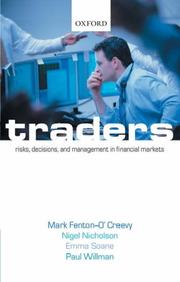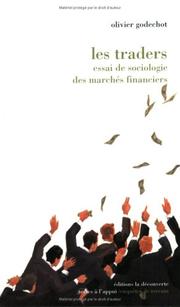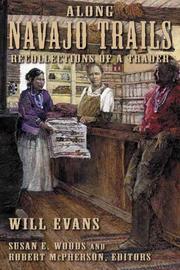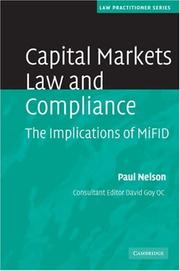| Listing 1 - 10 of 15 | << page >> |
Sort by
|

ISBN: 1423788842 0199226458 0191515000 128075768X 0191699403 9780191515002 Year: 2005 Publisher: Oxford ; New York : Oxford University Press,
Abstract | Keywords | Export | Availability | Bookmark
 Loading...
Loading...Choose an application
- Reference Manager
- EndNote
- RefWorks (Direct export to RefWorks)
Book
Year: 2021 Publisher: Universitätsverlag Göttingen
Abstract | Keywords | Export | Availability | Bookmark
 Loading...
Loading...Choose an application
- Reference Manager
- EndNote
- RefWorks (Direct export to RefWorks)
The well-known artist Georg Daniel Heumann (1691-1759), who came from Nuremberg, had been appointed as a university copper engraver at the Georgia Augusta in Göttingen in 1740. Because of his interest in itinerant street traders, he became the creator of the Göttingischen Ausruff, a series of prints of 30 artistic etchings. They are a valuable documentation of itinerant trade in a Lower Saxon agrarian town that was becoming a university town and where the traditional rural range of goods competed with the needs of a more sophisticated section of the population. With his excellent powers of observation and delight in detail, Heumann authentically captured the reality of life in Göttingen's street trading and the new ambience of the city. He did not depict types of street vendors, but individuals in their dress, body language, range of goods or services, Low German exclamations, and the way they transported and offered their wares. In the commentary, the editor presents the status of street trading within the Göttingen market regulations and the established guild system, which goods were desired and which were undesirable.Translated with www.DeepL.com/Translator (free version)
Society & social sciences --- copper engravery --- itinerant street traders --- Göttingen

ISBN: 270713385X 9782707133854 Year: 2001 Publisher: Paris: La Découverte,
Abstract | Keywords | Export | Availability | Bookmark
 Loading...
Loading...Choose an application
- Reference Manager
- EndNote
- RefWorks (Direct export to RefWorks)
Floor traders (Finance). --- Stock exchanges --- Agents de parquet --- Bourse --- Sociological aspects. --- Aspect sociologique --- Stock exchange --- Floor traders (Finance) --- Sociological aspects --- Stock exchange - Sociological aspects
Book
ISBN: 2070734994 9782070734993 Year: 2004 Volume: *31 Publisher: Paris: Gallimard,
Abstract | Keywords | Export | Availability | Bookmark
 Loading...
Loading...Choose an application
- Reference Manager
- EndNote
- RefWorks (Direct export to RefWorks)
Esclaves [Marchands d'] --- Handelaars [Slaven] --- Marchands d'esclaves --- Négriers --- Slave dealers --- Slave traders --- Slaven--Handelaars --- Slavenhandelaars --- Slavers --- Traders [Slave ] --- Slave trade --- Esclaves --- History --- Commerce --- Histoire --- Slave-trade --- Slavery --- Africa --- Slave-trade - History --- Slavery - History --- NOIRS --- TRAITE DES ESCLAVES --- ESCLAVAGE --- HISTOIRE

ISBN: 0874216060 9786613275240 1283275244 0874215234 9780874215236 9781283275248 0874216052 9780874216059 9780874216066 Year: 2005 Publisher: Utah State University, University Libraries
Abstract | Keywords | Export | Availability | Bookmark
 Loading...
Loading...Choose an application
- Reference Manager
- EndNote
- RefWorks (Direct export to RefWorks)
Will Evans was the proprietor of the Shiprock Trading Company in early 20th century New Mexico. Probably more than most of his fellow traders, he had a strong interest in Navajo culture. He published in the local newspaper and other periodicals and compiled many of his pieces into a book manuscript. His subjects were Navajos he knew and traded with, their stories of historic events such as the Long Walk, and descriptions of their culture as he, an outsider without academic training, understood it.
History. --- Indian traders. --- Indian traders - New Mexico - Shiprock Region - History. --- Navajo Indians - New Mexico - Shiprock Region - History. --- Navajo Indians - New Mexico - Shiprock Region - Social life and customs. --- Navajo Indians. --- Navajo weavers. --- Navajo weavers - New Mexico - Shiprock Region - History. --- Shiprock Region (N.M.) - History. --- Shiprock Region (N.M.) - Social life and customs. --- Social life and customs. --- Trading posts. --- Trading posts - New Mexico - Shiprock Region - History. --- Navajo Indians --- Navajo weavers --- Trading posts --- Indian traders --- Gender & Ethnic Studies --- Social Sciences --- Ethnic & Race Studies --- History --- Social life and customs --- Shiprock Region (N.M.) --- Traders, Indian --- Posts, Trading --- Weavers, Navajo --- Diné Indians (Navajo) --- Navaho Indians --- Merchants --- Barter --- Weavers --- Athapascan Indians --- Indians of North America

ISBN: 029911564X Year: 1988 Publisher: Wisconsin The University of Wisconsin Press
Abstract | Keywords | Export | Availability | Bookmark
 Loading...
Loading...Choose an application
- Reference Manager
- EndNote
- RefWorks (Direct export to RefWorks)
Slave trade --- Portugal --- History --- Angola --- Brazil --- Slave traders --- Commercial policy --- Commerce --- ESCLAVAGISME --- TRAITE DES ESCLAVES --- ESCLAVAGISTES --- POLITIQUE COMMERCIALE --- COMMERCE --- PORTUGAL --- HISTOIRE --- ANGOLA --- BRESIL
Book
ISBN: 9781474435116 1474435114 9781474435093 1474435092 9781474435123 147445366X 1474435122 Year: 2018 Publisher: Edinburgh : Edinburgh University Press Ltd,
Abstract | Keywords | Export | Availability | Bookmark
 Loading...
Loading...Choose an application
- Reference Manager
- EndNote
- RefWorks (Direct export to RefWorks)
Featuring new historical and ethnographic research on China and Southeast Asia, this book explores how power and violence have shaped the experiences of Sufis and state-builders, as well as refugees and rebels, contributing to a more nuanced understanding of Islamic cosmopolitanism.
Islam --- Muslims --- Cosmopolitanism --- Political science --- Internationalism --- Mohammedans --- Moors (People) --- Moslems --- Muhammadans --- Musalmans --- Mussalmans --- Mussulmans --- Mussulmen --- Religious adherents --- History. --- Mohammedanism --- Muhammadanism --- Muslimism --- Mussulmanism --- Religions --- cosmopolitanism --- traders --- Yiwu --- Afghanistan --- trading networks --- mobility
Book
ISBN: 9782930601106 2930601108 Year: 2014 Volume: 6, 9 Publisher: [Bruxelles]: Zones sensibles,
Abstract | Keywords | Export | Availability | Bookmark
 Loading...
Loading...Choose an application
- Reference Manager
- EndNote
- RefWorks (Direct export to RefWorks)
Il est appréciable que le peuple de cette nation ne comprenne rien au système bancaire et monétaire. Car si tel était le cas, je pense que nous serions confrontés à une révolution avant demain matin. Jamais cette phrase d’Henry Ford n’aura été si actuelle, et ce grâce aux transactions à haute fréquence. Si le trading ultra-rapide (qui représente désormais plus de 60% des échanges boursiers aux Etats-Unis) fait de plus en plus parler de lui, il n’existe aucun ouvrage accessible en français sur ces algorithmes qui calculent à la micro-seconde pertes et profits. 6 vient combler cette absence. Le sujet de « 5 », suite et fin de « 6 », sera principalement la montée en puissance de la modélisation mathématique des marchés, qui n’a qu’un seul objectif : prédire le futur (où le sous-titre de ce second opus : “Retour vers le futur”). Ces théories prédictives sont apparues en France à la fin du XXe siècle, et ont commencé à pénétrer le monde de la finance américaine dans les années 1960, un certain nombre des précurseurs de la mathématisation des marchés ayant auparavant testé leurs théories à… Las Vegas.
Speculation --- Capital market --- Stock exchanges --- Data processing --- Spéculation --- Traders --- Marché financier --- Flux financiers --- Informatique --- Algorithmes --- Finances --- Bulls and bears --- Commercial corners --- Corners, Commercial --- Equity markets --- Exchanges, Securities --- Exchanges, Stock --- Securities exchanges --- Stock-exchange --- Stock markets --- Efficient market theory --- Capital markets --- Market, Capital --- Finance --- Financial institutions --- Loans --- Money market --- Securities --- Crowding out (Economics) --- Bucket-shops --- Gambling --- Commodity exchanges --- Contracts, Aleatory --- Investments --- Spéculation. --- Traders. --- Flux financiers. --- Informatique. --- Finances. --- Data processing. --- Capital market - Data processing --- Spéculation. --- Marché financier
Book
ISBN: 1108695175 1108651917 1108493033 1108681999 1108730361 Year: 2020 Publisher: Cambridge : Cambridge University Press,
Abstract | Keywords | Export | Availability | Bookmark
 Loading...
Loading...Choose an application
- Reference Manager
- EndNote
- RefWorks (Direct export to RefWorks)
William H. Williams operated a slave pen in Washington, DC, known as the Yellow House, and actively trafficked in enslaved men, women, and children for more than twenty years. His slave trading activities took an extraordinary turn in 1840 when he purchased twenty-seven enslaved convicts from the Virginia State Penitentiary in Richmond with the understanding that he could carry them outside of the United States for sale. When Williams conveyed his captives illegally into New Orleans, allegedly while en route to the foreign country of Texas, he prompted a series of courtroom dramas that would last for almost three decades. Based on court records, newspapers, governors' files, slave manifests, slave narratives, travelers' accounts, and penitentiary data, Williams' Gang examines slave criminality, the coastwise domestic slave trade, and southern jurisprudence as it supplies a compelling portrait of the economy, society, and politics of the Old South.
Williams, William H., --- Slave traders --- Slave trade --- Slavery --- History --- Washington, D.C. --- History, Local. --- Slave dealers --- Slavers --- Traders, Slave --- Persons --- Washinton (D.C.) --- Vashington (D.C.) --- Wāshinṭūn (D.C.) --- Nation's Capital (D.C.) --- Corporation of the City of Washington (D.C.) --- Washington City (D.C.) --- Federal City (D.C.) --- Wash. (D.C.) --- City of Washington (D.C.) --- DC (D.C.) --- D.C. (D.C.) --- District of Columbia --- Вашингтон (D.C.) --- Vasington (D.C.) --- Huachengdun (D.C.) --- 华盛顿 (D.C.) --- Enslavers

ISBN: 1107187613 1281243892 9786611243890 0511378483 0511377614 0511376677 0511375131 0511494807 0511379358 9780511379352 9780511378485 9780511376672 9780511494802 0521889367 9780521889360 9781107404663 1107404665 9781107404663 9781107187610 9781281243898 6611243895 9780511377617 9780511375132 Year: 2008 Publisher: Cambridge, UK ; New York : Cambridge University Press,
Abstract | Keywords | Export | Availability | Bookmark
 Loading...
Loading...Choose an application
- Reference Manager
- EndNote
- RefWorks (Direct export to RefWorks)
The Markets in Financial Instruments Directive (MiFID) is a detailed re-writing of the regulation of capital markets. To the extent those rules permit, the Financial Services Authority (FSA) is also introducing high-level 'principles-based regulation'. In response to this, Paul Nelson presents practical guidance on the regulation of the capital markets, ranging from new issues and IPOs to investment banking, broker-dealing and asset management. All laws and rules relevant to the regulation of the capital markets are explained and put into context within the economic operation of markets, institutions and products, the European Single Market, the FSA's policies and objectives, the historical evolution of the regulations and the general civil and criminal law. Drawing on 30 years' experience as a practitioner, and referring to a vast range of supporting materials, the author provides an insightful analysis and critique of the rules, the rule makers and the institutions.
Financial services industry --- Securities --- Stockbrokers --- Investment brokers --- Securities dealers --- Security traders --- Stock brokerage firms --- Stock brokers --- Brokers --- Services, Financial --- Service industries --- Law and legislation --- State supervision --- Legal status, laws, etc. --- 346.0920941 --- Uh3.1 --- Legal status, laws, etc --- European Parliament. --- Council of the European Union. --- Law --- General and Others
| Listing 1 - 10 of 15 | << page >> |
Sort by
|

 Search
Search Feedback
Feedback About UniCat
About UniCat  Help
Help News
News